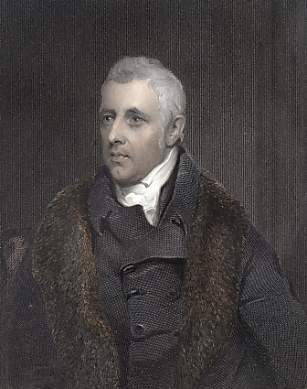
Dudley Ryder, 1st Earl of Harrowby, PC, FSA was a prominent British politician of the Pittite faction and the Tory party.

Earl of Harrowby, in the County of Lincoln, is a title in the Peerage of the United Kingdom. It was created in 1809 for the prominent politician and former Foreign Secretary, Dudley Ryder, 2nd Baron Harrowby. He was made Viscount Sandon, of Sandon in the County of Stafford, at the same time, which title is used as a courtesy title by the heir apparent to the earldom. His son, the second Earl, held office under Lord Palmerston as Chancellor of the Duchy of Lancaster and Lord Privy Seal. He was succeeded by his eldest son, the third Earl. He was a Conservative politician and notably served as President of the Board of Trade from 1878 to 1880.

Dudley Francis Stuart Ryder, 3rd Earl of Harrowby, known as Viscount Sandon from 1847 to 1882, was a British peer and politician.

Dudley Ryder, 2nd Earl of Harrowby, KG, PC, FRS, styled Viscount Sandon between 1809 and 1847, was a British politician. He held office under Lord Palmerston as Chancellor of the Duchy of Lancaster in 1855 and as Lord Privy Seal between 1855 and 1858.
Lieut.-Colonel Sir Charles Arthur Andrew Frederick was a British Army officer and courtier. He was Master of the King's Household and an Extra Equerry to King Edward VII and to Queen Alexandra.
Henry Ignatius Dudley Ryder was an English Roman Catholic priest of the Birmingham Oratory and controversialist.

Henry Dudley Ryder was a prominent English evangelical Anglican bishop in the early years of the nineteenth century, most notably as Bishop of Lichfield. He was the first evangelical to be raised to the Anglican episcopate.

Sir Henry Frederick Stephenson was a Royal Navy officer, courtier, and Arctic explorer.
Lieutenant-General Sir John Plumptre Carr Glyn was a British general who saw active service in the Crimean War and the Anglo-Ashanti War.

Major-General Hugh Richard Dawnay, 8th Viscount Downe, was a British Army general and President of the Marylebone Cricket Club.

General Sir Henry de Beauvoir De Lisle,, known as Beauvoir De Lisle, was a British Army officer and sportsman. He served in both the Second Boer War and the First World War.

Admiral Sir Richard Poore, 4th Baronet was a Royal Navy officer who went on to be Commander-in-Chief, The Nore.
The King's Birthday Honours 1901 were announced 9 November 1901, the birthday of the new monarch Edward VII. The list included appointments to various orders and honours of the United Kingdom and British India.
The 1902 Birthday Honours were announced on 10 November 1902, to celebrate the birthday of Edward VII the previous day. The list included appointments to various orders and honours of the United Kingdom and the British Empire.
The 1903 Birthday Honours were announced on 9 November 1903, to celebrate the birthday of King Edward VII that day. The list included appointments to various orders and honours of the United Kingdom and the British Empire.
John Sargent (1780–1833) was an English clergyman, academic and biographer. Wealthy by background but a country pastor, he was a prominent Evangelical who came to be regarded by others on his wing of the Church of England as an exemplary cleric. He was also centrally connected, by ties to other major Evangelicals of the time.
Captain Sir Montagu Frederick Ommanney, was a British civil servant and Head of the Colonial Office 1900–1907.
Sir Samuel Butler Provis was a British civil servant, working at the Local Government Board for 37 years.
The 1889 Birthday Honours were appointments by Queen Victoria to various orders and honours to reward and highlight good works by citizens of the British Empire. The appointments were made to celebrate the official birthday of The Queen, and were published in the London Gazette on 24 May 1889 and in The Times on 25 May 1889.
The 1884 Birthday Honours were appointments by Queen Victoria to various orders and honours to reward and highlight good works by citizens of the British Empire. The appointments were made to celebrate the official birthday of the Queen, and were published in The London Gazette in May and June 1884.









